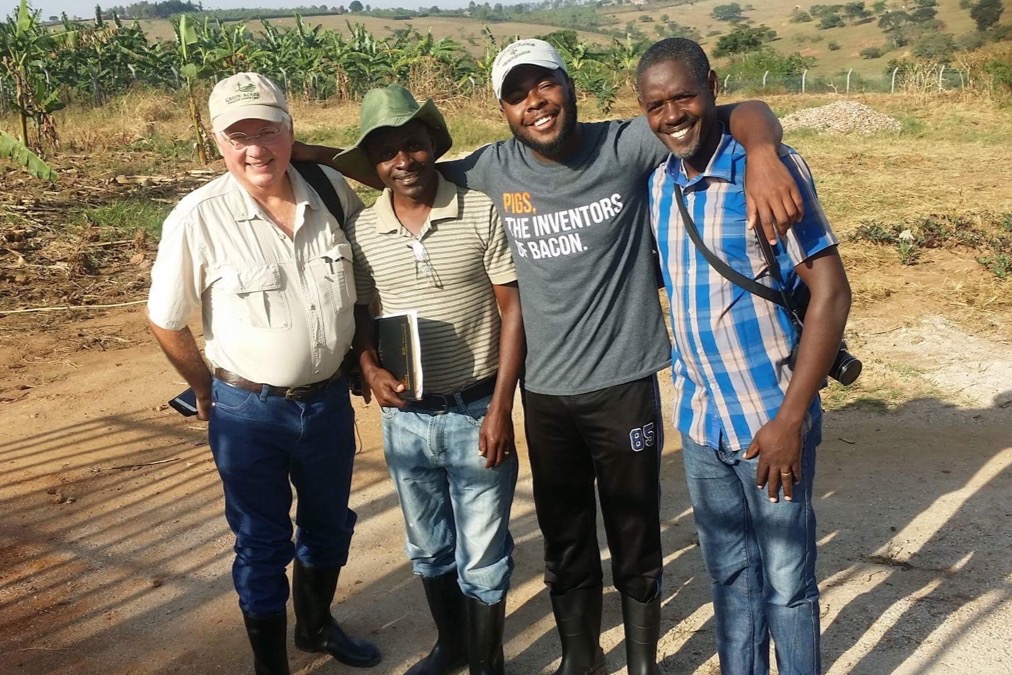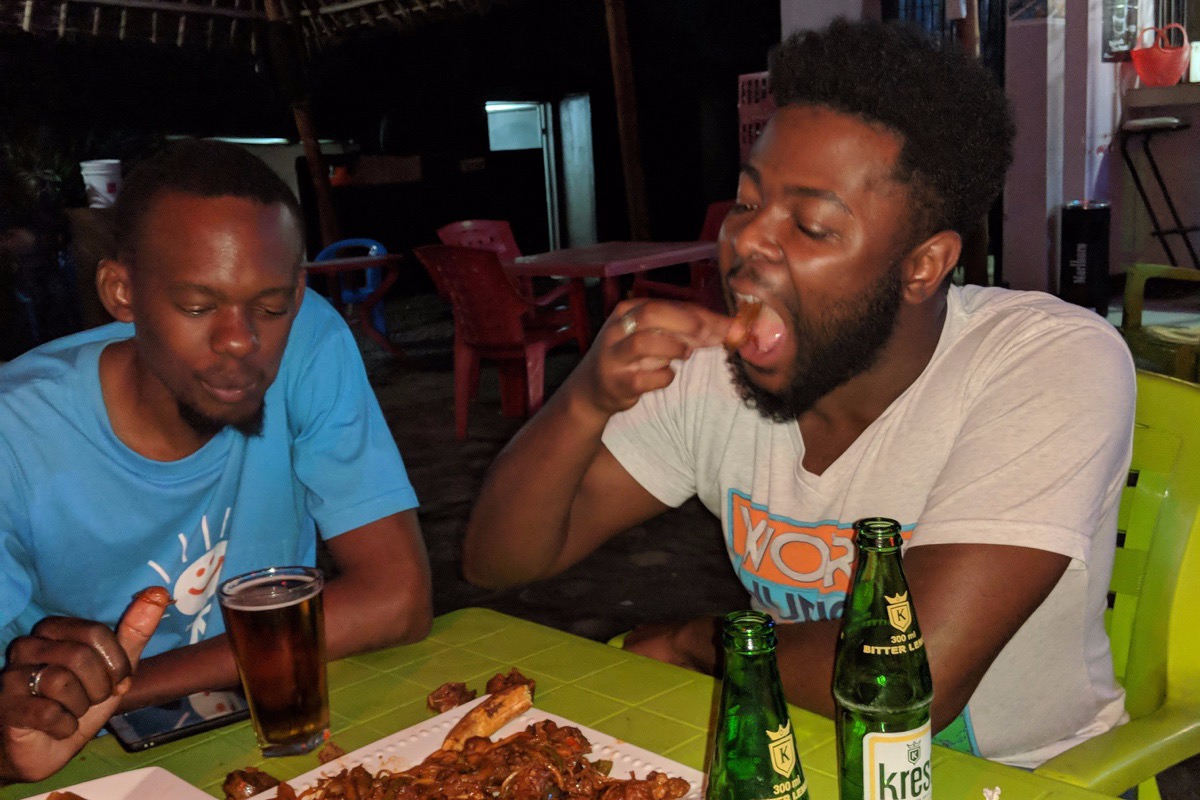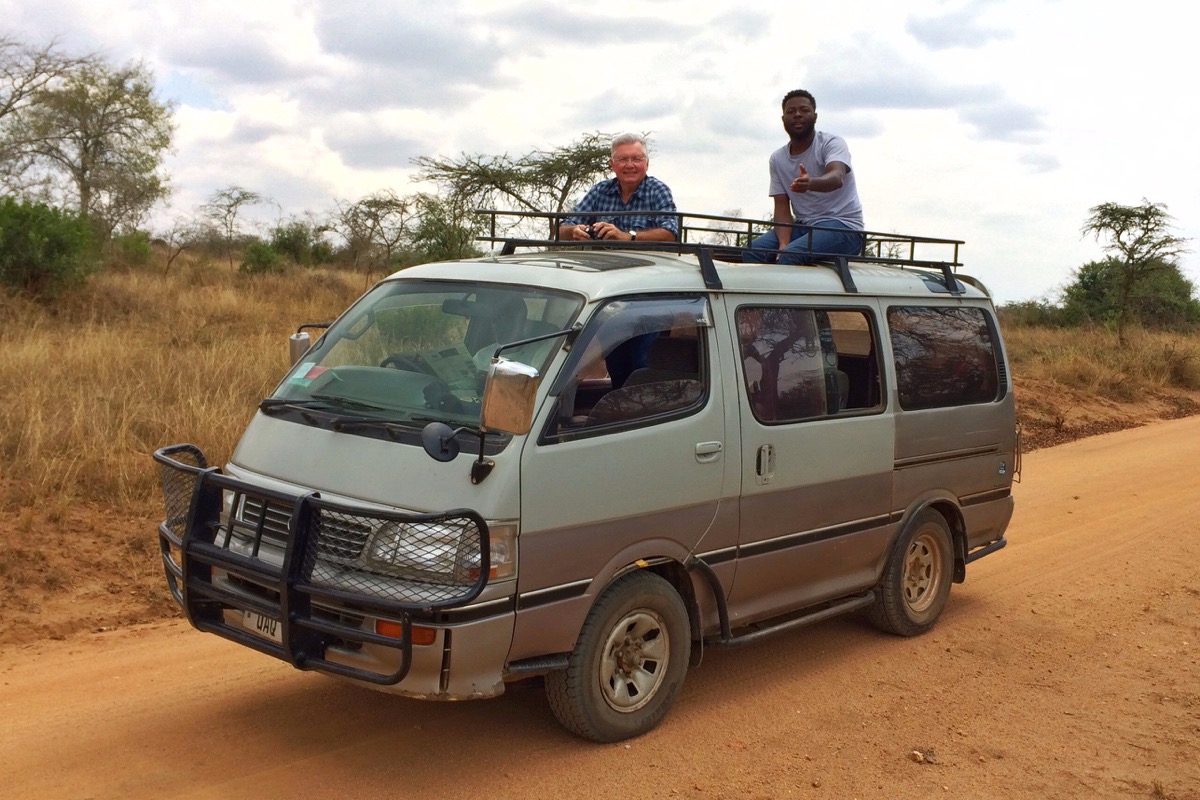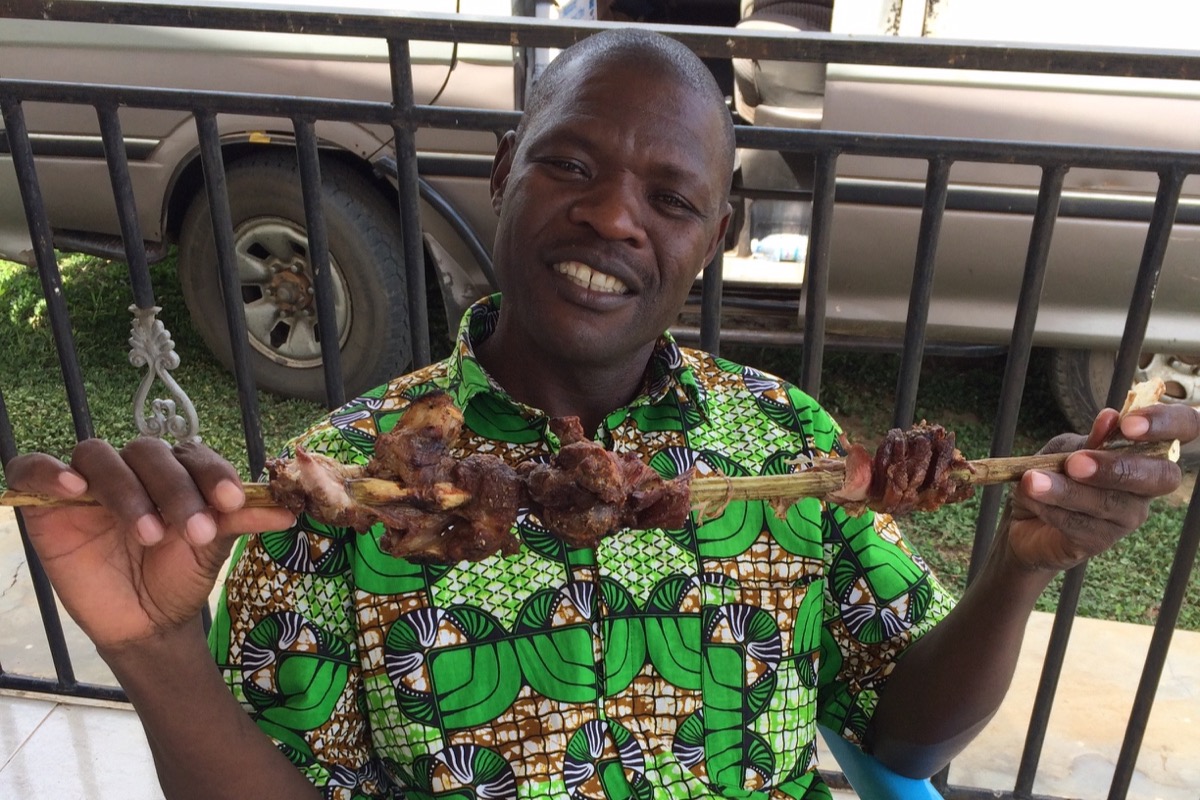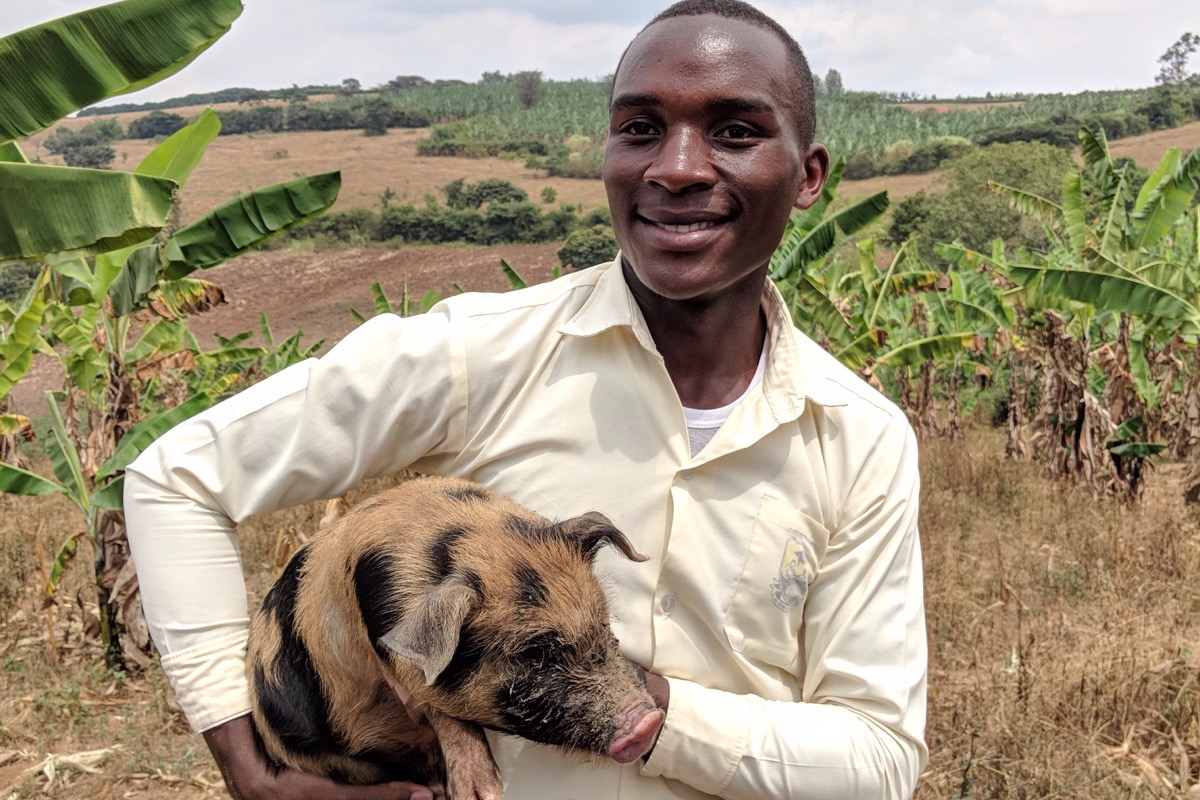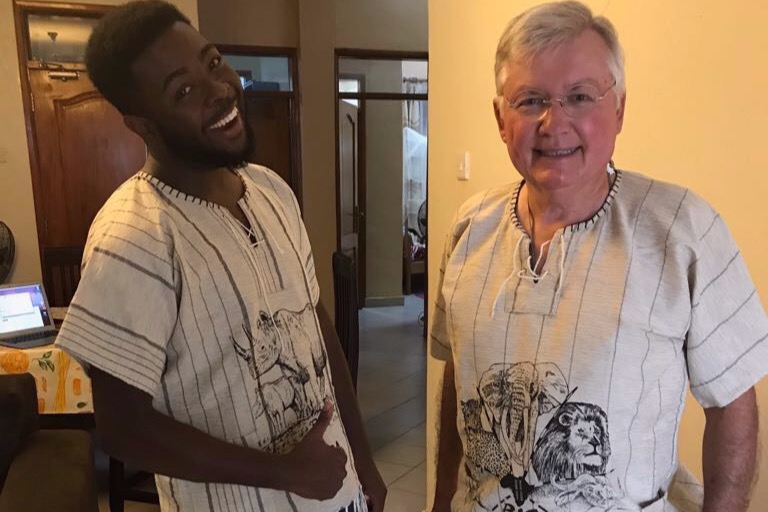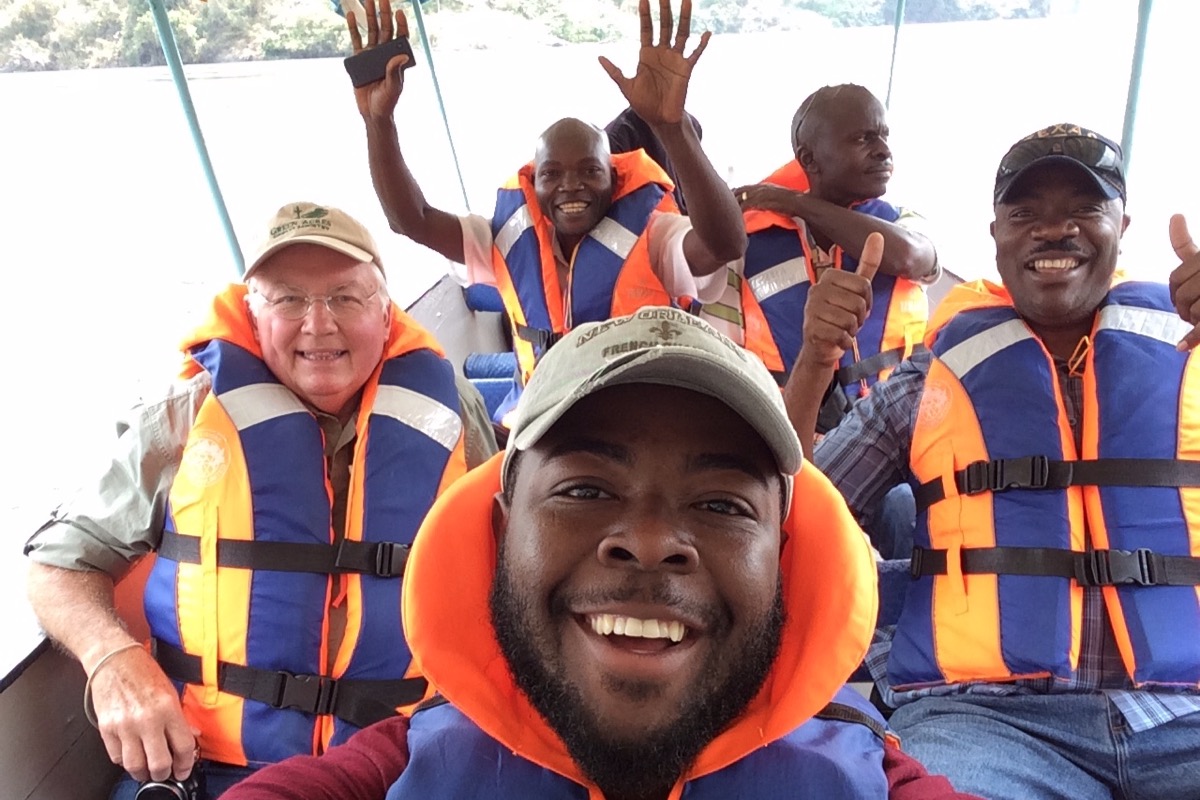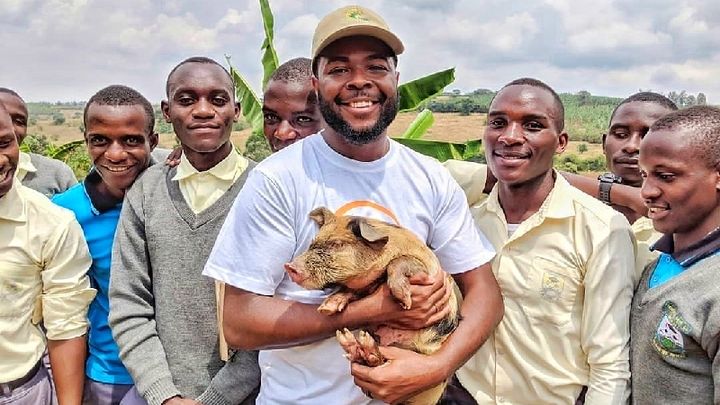
"Pork" Rhyne's 2019 East Africa Trip
WELCOME!!!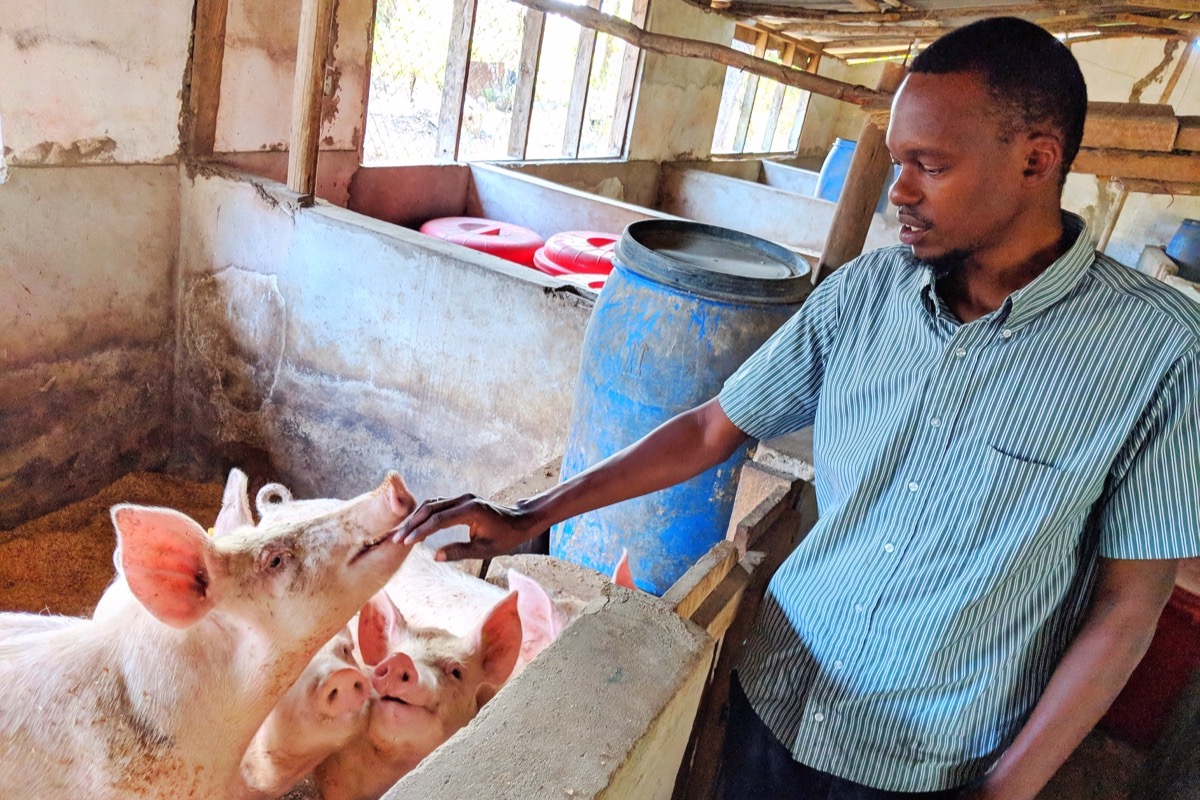
Thank you for visiting this page to hear my story and desire to join EATBETA for the 2019 Summer Missions. Last year, I was extremely hesitant to ask for donations and funding for this trip. I had this anxiety that barely anyone would support me for this cause, which would normally discourage me from doing this all together. However, I was blessed by an abundance of support from those who heard my story and believed in the importance of lifting up the East African community through agricultural training and standardizing animal welfare practices on their farms. I highly encourage you to read through my words and pray or think about whether or not you should support me. If you are up for the challenge, I encourage you to use this as an opportunity to speak to God and not simply act for the sake of being good but with purpose and an internal calling to answer my request for funding. Below are sections to give you an idea of what exactly E.A.T.B.E.T.A. is, my involvement with the organization, and our purpose in Uganda.
How This All Started
My path to Uganda started in the Summer of 2017 when I was invited to speak at a conference in Houston, TX, where I was to hold a session on outdoor pig farming. Through an undeniably fated encounter, I was invited to go on a journey to Uganda. What a lot of people don't know is that this chain of events was during a difficult time in my life where I was dealing with depression and a low sense of self-worth that stemmed from some personal failures in my life. However, through what seemed to be dread put me in a place to receive humility and redefined the relationship I have with God. Unlike most of the opportunities I've taken in the past, I wanted to use this invitation to exercise this new direction I have with God. I decided to wait for confirmation from God, rather than just jump on the opportunity without seeking him out first. Through this process of fasting, worshipping, and seeking, I was able to hear and see God's confirmations. For the first time in a long time, I had noticed God's ever-present hand in such a clear manner. When I had received my confirmations I accepted the offer to go to Uganda as an agricultural educator who would train Ugandan farmers on proper livestock and gardening practices.  EATBETA International EATBETA stands for Evangelizing Africa Through Business Empowerment and Transformative Agriculture, which in a lot of ways, goes hand in hand. Dr. Julius Sonko is the founder and visionary behind EATBETA, a nonprofit organization whose mission is to transform rural livelihoods by alleviating unemployment and food shortage in sub-Saharan Africa. As a teacher of Corporate Finance at Dallas Baptist University, he believes that empowering smallholder farmers, with skills in business and agriculture, would eventually help to transform rural livelihoods. Dr. Sonko is always reminded that he was raised in Africa and he knows, first hand, the challenges facing most Africans who live in rural sub-Saharan Africa. Julius is a true friend of mine now. He is someone that I have the utmost respect for; someone who has looked out for me ever since we first met. 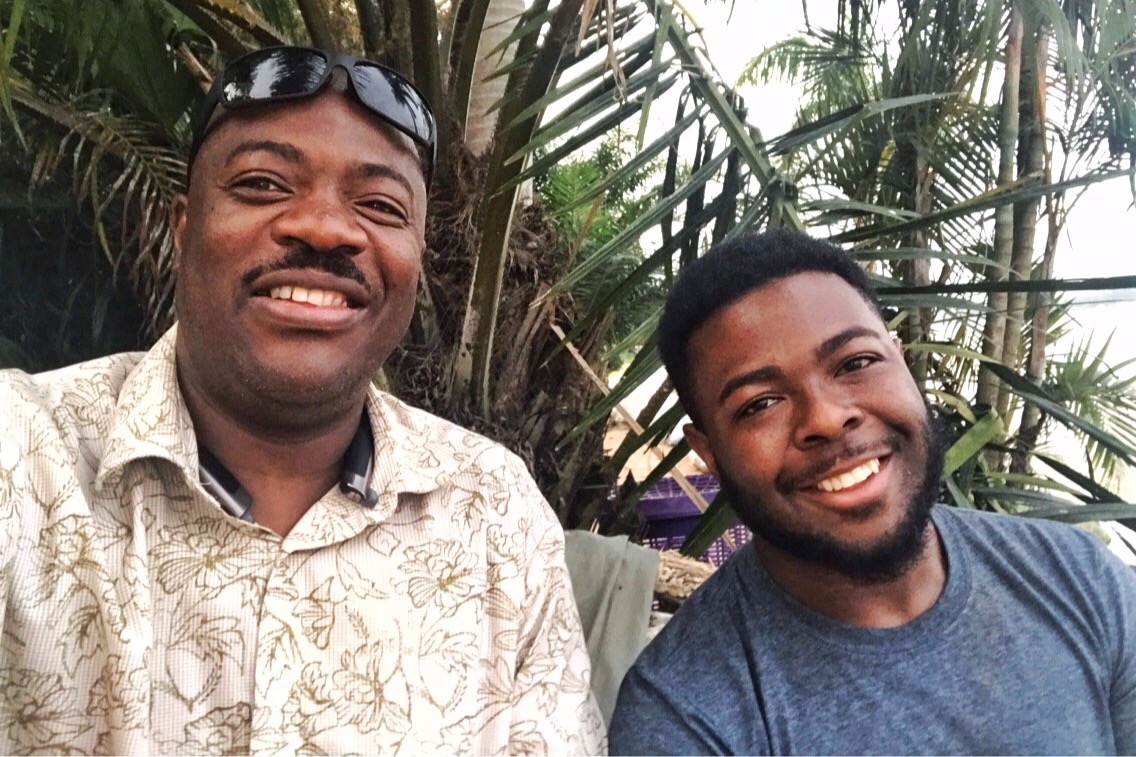
2019 Goal
After last year's trip, I realized that the training I was doing was going to slowly reach a plateau. My information wasn't the issue, I just lacked context. No matter how many times I go to East Africa I will never fully capture the context of their practices and hardships. There are problems that they face that I can not wrestle with in one visit a year. I realized that I need to focus more on training those who would be confident in training others. If I can achieve that, I will be able to dedicate more time towards developing a strategy for how to better mobilize our farmers in a way that would bring collaborative partnerships with one another. I believe that will allow them to enter into more streamline markets and generate more secure revenue. This could also give them enough money to reinvest and upscaling their farms to produce at a higher capacity. My time in-country is valuable so I have to make better decisions on how I want to spend that time. I feel that leading the training in different villages does a disserves to the farmers when there are those who fully understand the farmer's context and unique struggles. It also follows EATBETA's mission of education and empowerment. I need to train people, not to be dependent on my training, but to be able to feel confident in what I've taught them so that they are made capable of training farmers within their community and region. 
Impact
Through my presence on this trip, Ugandan villagers will be able to receive training in topics such as...
-Livestock Husbandry (Basic Care)
-Livestock Nutrition
-Livestock Breeding
-Manure Management
-Biosecurity & Food Safety
-Livestock to Crop Rotation
This may surprise you, but agricultural practices that are standard in the United States are not commonly placed for most African farmers. Here are some real examples from my personal experience...
Example #1:
During my farm visit to a village near the city of Jinja, I noticed that there was a pumpkin patch right beside a swine pen that was raised on a platform. To illustrate the setup, the platform is designed to allow waste to fall through the bamboo slats of the enclosure leaving the ground underneath covered in pig waste. When I saw this, red flags immediately popped up! These farmers were growing produce right by swine waste! The issue with this is that close proximity of swine waste to produce gardening can run the high risk of E. Coli poisoning if consumed. For all my produce farmers, this would be a major G.A.P. violation. With concern on my face, I asked them what these pumpkins were being grown for. One farmer responded by saying, "We will sell these to the market." After hearing that there was no doubt; people would be eating pumpkins exposed and covered in pig manure. I used this as an opportunity to teach the farmers why growing pumpkins right by pigs was unwise. For them, they saw fertility by growing them close to pigs, but I had to warn them that swine manure can be deadly when mismanaged. I suggested moving manure to compost piles that can be used once the compost/manure had sat for a while or spreading manure out in a plot for feed corn and other tall crops. Some were a little embarrassed but overall they really appreciated what I had to suggest to make their food safe to eat. 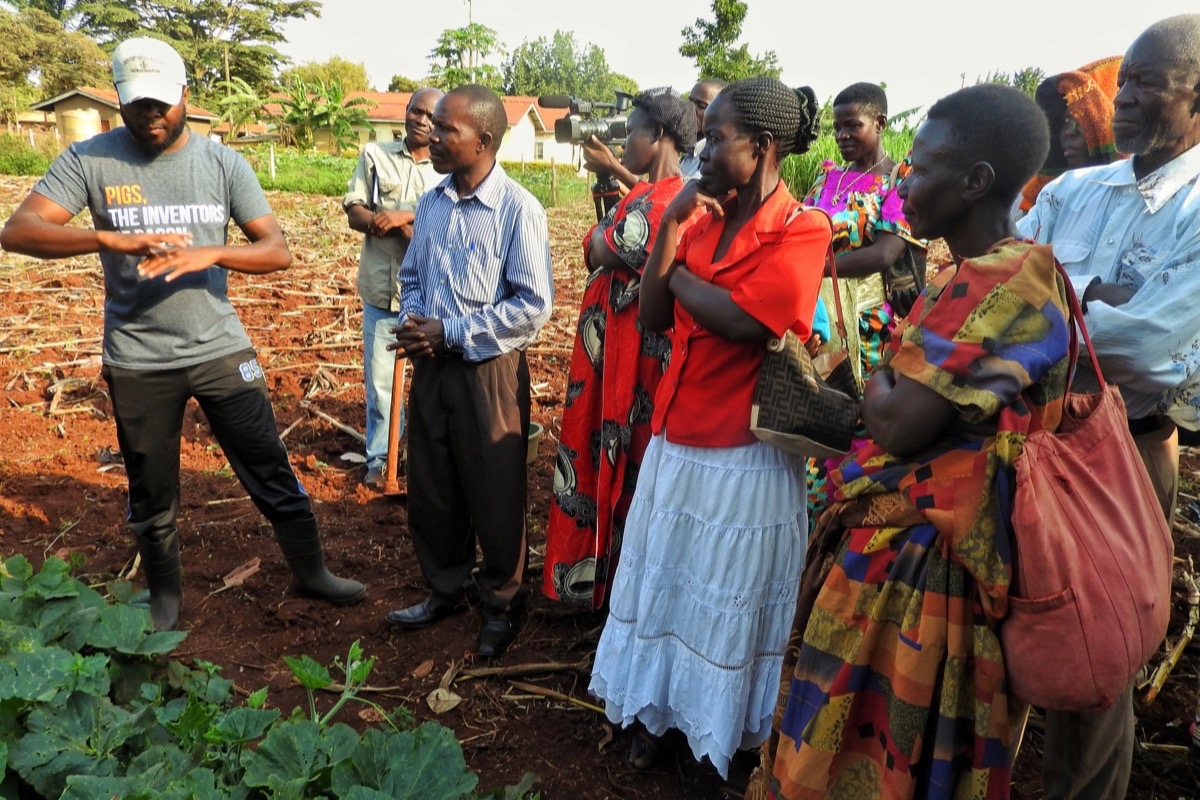
Example #2:
We had traveled to the Western region of Uganda that was somewhat new to pig farming. While there, one woman complained about her first-time sow giving birth to stillborns. I looked at the sow who looked pretty pitiful and undersized. Apparently, this sow was bred at 4 months old... female pigs can reach sexual "maturity" between 4-6 months, but it's standard practice to wait until 8 months-1 year before breeding... so that the sow's body is more developed for farrowing (giving birth/pig). In essence, that sow was like a 13-year-old girl having a baby. Age combined with a diet of the soupy beans and occasionally small quantity of garden scraps and being tied to a tree the entire time made for some very unideal conditions for the sow to give birth.  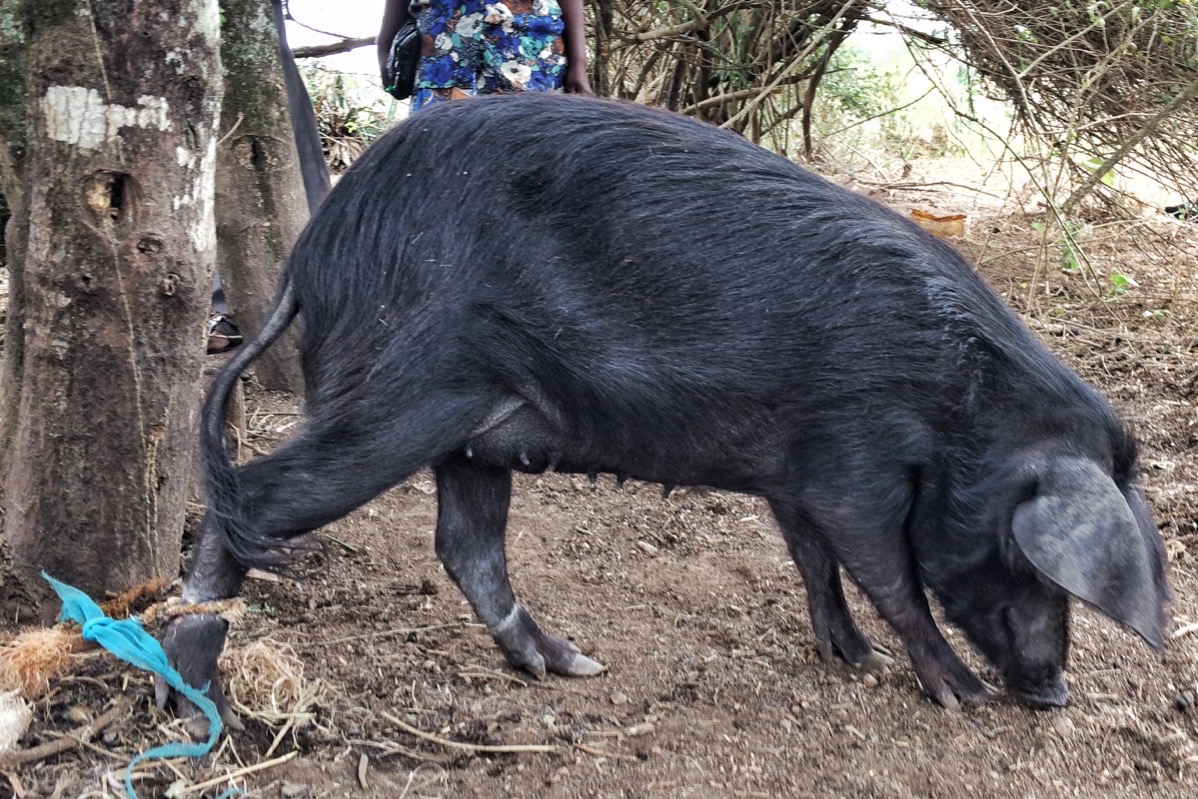
Example #3:
During our visit to the town of Kamuli, we visited a pig farm that was confinement with concrete flooring and a couple of new deep bedded enclosures. When observing the pigs I noticed that they all looked weak and that their movements were very lethargic. I looked around again and noticed that the sows, who had piglets, were bone thin and had no water in their enclosure. Trusting the farmer at his word about how much he fed his pigs, yet reminding him of the standard, I asked him what exactly he was feeding them. He proceeded to explain that his feed was made from ground soy and corn. To clarify, I asked if that was all that was in their feed. He nodded his head. From there I expressed the importance of pigs receiving minerals in their diet. This might sound strange, but feeding charcoal from wood, rich clay which is plentiful in the area, and weed plants would give their pigs most of their mineral needs. As for the sows, I strongly encouraged the farmer to give them constant access to water, especially when nursing, to keep up with producing milk; if the sow is unhealthy so will their piglets, causing stunt growth and other ailments. 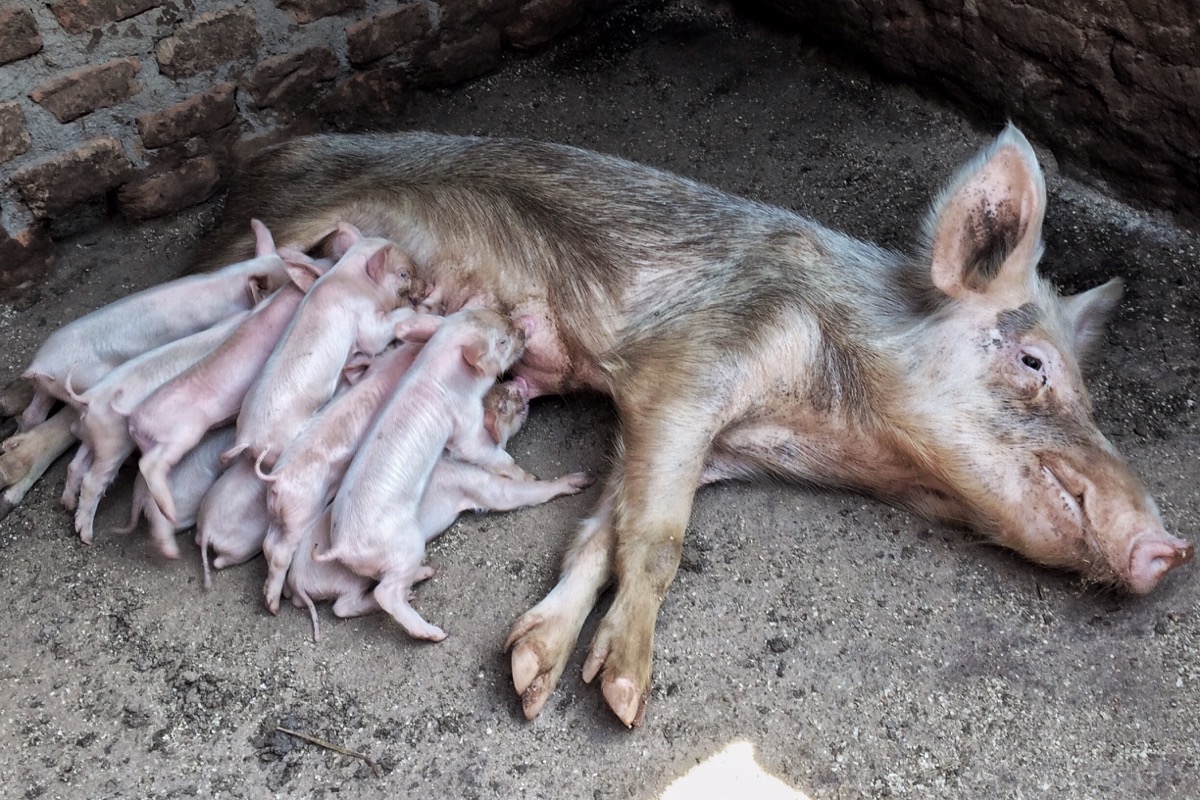
Examples like these are why it's important that I go back and continue my work towards educating these farmers. The better their farming practices the better the animals will be, the safer their food will be to eat, and the more money they can save from farming wisely. As for me, this mission will help me as an agricultural educator. Part of educating is being able to adapt to the overall needs of those in training. This experience will allow me to practice and demonstrate this is a very unique and challenging setting.
Some of the challenges that I face when communicating to African farmers include...
-language barrier
-no education past elementary or middle school (adults)
-explaining scientific information
-cultural/value differences
-influence of poverty on farming decisions
These are just some of the challenges that I embrace because it only improves my ability to be an effective communicator. As an avid problem solver, I enjoy finding solutions to assist farmers within their individual situation. It can be mildly frustrating, but the joy of figuring out a problem overshadows any discomfort. 
Reflections
"To know that my knowledge could not help those pigs because these farmers were just too poor was heartbreaking. But the problem wasn't how the pigs were raised, the problem was these humans are living in poverty with little assistance and training. It was a sobering moment to get my head out of my pig-loving 'self' to see that I needed to help solve a more pressing issue. With the hand plows that are being welded for this community, we hope to see an improvement on the villagers crop farming. Maybe that can translate into a better life for their sows... but I know it will translate to a better life for each villager."
"Literally, the happiest moment while in Uganda! It's always a good day when you visit a pig farm and you see healthy pigs! I met a young man who had some pigs on concrete (which I'm not a fan of), but to see how clean he and his family keep the pens made me smile! The piglets were lively and beautiful! The sow they had even resembled a Large Black with its black skin and flopped ears... I'm willing to bet money that LB is in her bloodline! This experience was truly a gem of happiness for me! I wish the young man and his family more happy and healthy pigs in their future." "During my time here in Uganda, I realized that I am more concerned about whether a person is raising pigs in a healthy environment than I am on what method they use to raise them."
"'I do not have the answer'. It's a reality I made sure I remembered while I spoke to about 20 farmers here in western Uganda this afternoon. It's important that I got that through my head because too many times have I seen and heard service workers, evangelists, volunteers, and the organizations that transplant themselves, completely ignore that which is essential: humility."
"After my advisement session, one of the lead farmers came up to me and told me that he wanted to go free-range with his pigs because he now understands how to utilize the pigs for land fertility and the importance of producing the best pork possible. There's a lot more to this story but it was good to hear that my words and knowledge were enough to convince these farmers to reconsider how they raise pigs and to try new practices for better land, happier pigs, and tastier pork."
Budget Breakdown
Plane Tickets: $2,000
Hotels: $700
Meals: $450
Tour: $300
Visa: $100
Miscellaneous: $150
Total: $3,700
If you have any general questions about the trip please go to EATBETA's website at https://eatbeta.org
In the meantime, enjoy some of the fun moments I've experienced thanks to the support of people like you!          
     
